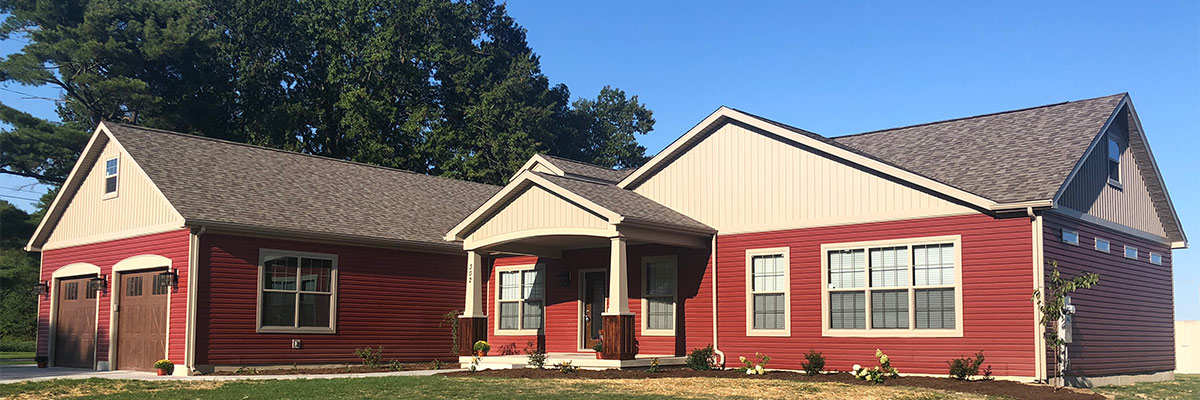Housing affordability is a nationwide problem, it’s not limited only to Illinois. Housing policy is complex and rent control is the last thing that should be implemented as housing policy.
At the heart of the affordability issue is the dramatic decline in overall production of housing during the last decade. When the economy shattered in 2008, housing production fell drastically. Adding immensely to the housing affordability problem are the many local jurisdictions who have successfully developed big-box retail centers and commercial office parks with thousands of new jobs, and no provisions for housing any of the workers at the varying wage levels needed to fill those jobs.
Factory built housing is uniquely positioned to help alleviate demand for new homes, however some cities discriminate against this affordable alternative and flatly prohibit factory built housing as an option within their jurisdictions.
Who wants rent control, and why?
Rent control is an easy fix. Think your rent is too high? OK, let’s just pass a law capping it. Problem solved, right? Of course not, but it sure sounded good ahead of the election.
A State Senate Special Committee on Housing Affordability and Rent Control has been holding hearings regarding a bill that would impose a statewide rent control program in Illinois. The Chair of the Special Committee and chief sponsor of Senate Bill 3512, Senator Mattie Hunter (D-Chicago) provided for a very fair hearing process allowing all viewpoints to be heard.
Renters receiving disability, social security or other entitlement payments explained their situation as struggling tenants that pay more than 30 percent of their income in rent, and see rent control as a solution to their situation.
As of this writing six (6) Regional Rent Control Boards are being proposed which would set a “Rent Stabilization Rate” for every county and city in the Board’s region. Landlords could not increase rents above the “Stabilization Rate” (which would be tied to a Consumer benchmark like the Consumer Price Index) without approval of the Board.
Of concern is how an all-volunteer board, that might meet 4 times a year, could hear all the varied requests for rent adjustments that would be required. Also how would CPI take into account varied tax increases (local, state or federal), insurance and other fixed operating cost increases (varied by operator, property or company), and even local inspection fees which might be imposed or individual utility provider cost increases.
What Will Work?
IMHA has been represented at all the special committee hearings, has provided both written and oral testimony and has offered the following examples of policy solutions that the next state legislative session can attempt to address, before it gets caught up in ill-formed attacks on the working class and opening the door to rent control.
- Housing component law: Address the varied ways cities don’t zone for enough housing, don’t zone for multifamily housing or land lease communities and only allow low density residential on large lots.
- Encourage housing development in existing commercial areas: In cities with low housing production and availability, push to allow residential development on large and underutilized commercial/big box/strip mall sites, especially in transit-served areas.
- Require housing for future commercial expansion: Many cities prefer and zone primarily for commercial office and retail with little or no thought towards housing. The state legislature could require a jobs/housing analysis for all master plan development, say over 5 acres in size, identifying the estimated job creation by wage level, and mandating that appropriate housing for the new worker households be provided as part of the development plan.
- Remove barriers to housing approval: Address cities that effectively block all housing development or reduce density through the approvals process. Develop a way to identify the problem and sort out good from bad policy, and then challenge those cities to correct the problem.
- Affordable housing zoning: Affordable housing faces particular barriers from approval processes and zoning in many jurisdictions. For the creation of affordable housing to take place, zoning densities may need to be relaxed and approvals streamlined.
- Remove barriers to workforce housing: Many cities deny approval for affordable workforce housing, or allow development only on the most difficult and undesirable sites. Consider linking state disbursements of infrastructure money, whether for transportation or parks, to approvals and funding for affordable housing alternatives in those already well-resourced jurisdictions.
Rent control battle will dominate in 2019
We remain hopeful that this legislation will not be considered before the end of session but we fully anticipate that this type of feel-good legislation will be reintroduced when the new General Assembly convenes in January.
We expect to be facing a tough fight on rent control in the Spring of 2019. But we have a strong position, the facts are with us, and legislators are beginning to listen to us.
With your help, involvement, together with the advocacy resources at our disposal, we can and will prevail on this issue!




